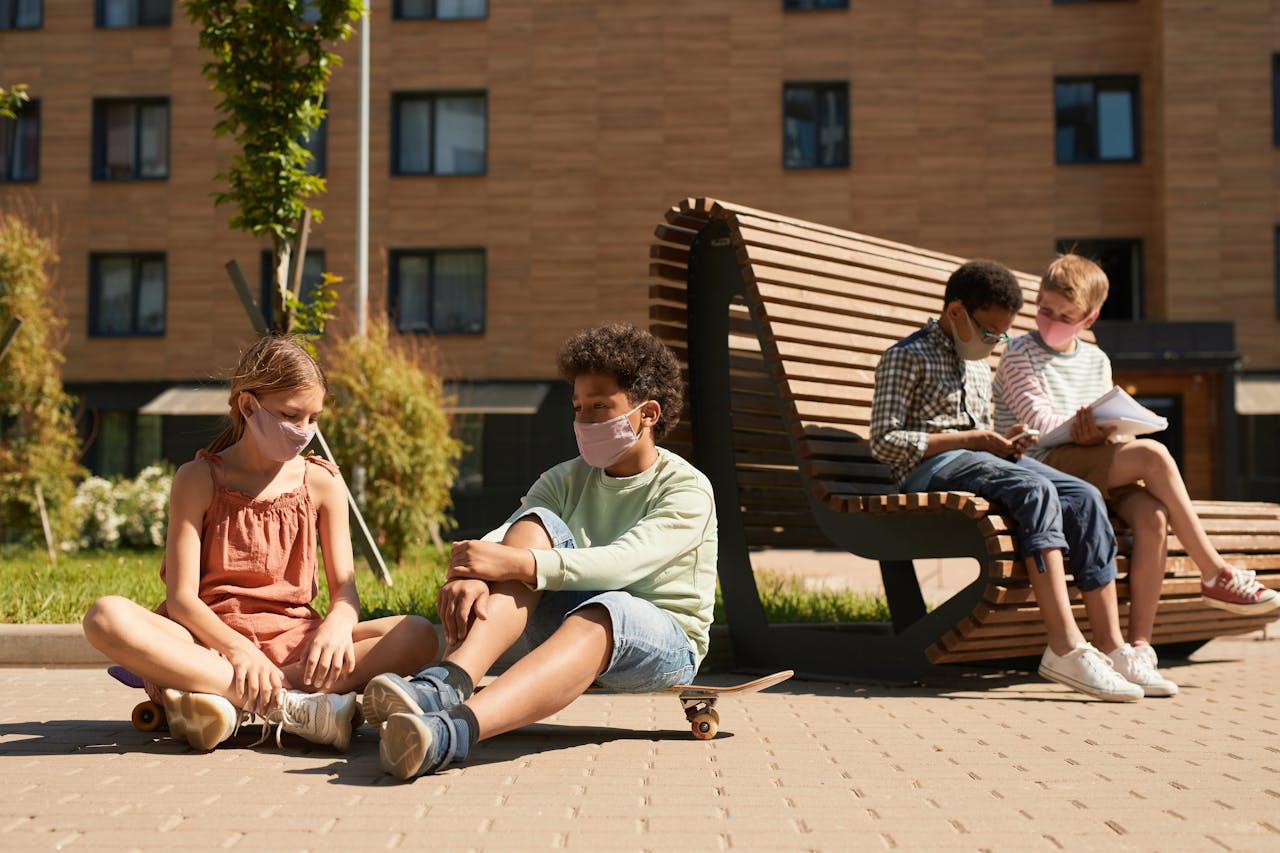In the bustling, information-driven world we live in today, mental health has emerged as a pressing concern, particularly in adolescents. Navigating this challenging phase of life can be made even more difficult by the myriad of pressures young people face. One increasingly popular way to combat these pressures is through the participation in outdoor activities. But how exactly does this impact mental health in adolescents? Let’s delve deeper into this compelling subject.
The Link between Outdoor Activities and Adolescent Mental Health
Before we can understand the impact outdoor activities have on adolescent mental health, it’s important to first establish a link between the two. Adolescence is a period of rapid growth and development characterized by physical, emotional, and behavioral changes. This can often lead to feelings of stress, anxiety, and depression. Engaging in outdoor activities is one way adolescents can manage these feelings and contribute to their overall mental health.
This might interest you : How Can Wearable Technology Help in Monitoring and Managing Chronic Diseases?
Outdoor activities can range from organized sports and games to simply spending time in a natural environment. These activities have been shown to have a significant positive impact on mental health in various ways. They can foster better social interactions, provide a sense of achievement and competence, and offer a much-needed break from technology and indoor pressures.
How Outdoor Activities Boost Self-esteem and Confidence
Adolescence is a critical period for the development of self-esteem and confidence. During these years, adolescents are often trying to figure out who they are and where they fit in. Participation in outdoor activities can play a crucial role in this process.
In parallel : How Can Community-Based Interventions Reduce Health Disparities in Rural Areas?
When adolescents engage in outdoor activities, they are often put in situations that require them to overcome challenges and work with others. This helps them build resilience and develop problem-solving skills. They also have the opportunity to achieve goals, which can significantly boost their confidence.
Additionally, outdoor activities often encourage adolescents to push their boundaries and try new things. This not only contributes to their physical development, but it also helps them develop a sense of independence and self-confidence.
Alleviating Stress and Anxiety through Outdoor Activities
Adolescence can be a stressful time, fraught with academic pressures, societal expectations, and personal issues. Outdoor activities can offer an effective outlet for alleviating this stress and anxiety.
Spending time in natural environments has been proven to reduce stress levels and boost mood. The physical activity involved in outdoor activities also helps adolescents release endorphins, the body’s natural mood elevators. This can leave them feeling more relaxed and happier.
Moreover, outdoor activities often involve some form of social interaction, whether it’s team sports or just spending time with friends. This social aspect can offer adolescents a sense of belonging and help combat feelings of loneliness or isolation, which are often linked to anxiety and depression.
The Role of Outdoor Activities in Fostering Resilience and Coping Skills
Resilience and coping skills are crucial for managing the emotional ups and downs of adolescence. Luckily, these are skills that can be honed through participation in outdoor activities.
Confronting and overcoming challenges in the great outdoors can help adolescents build resilience. They learn to adapt to different situations, handle failure, and push through tough times. These experiences teach them that they have the ability to overcome obstacles, a lesson that can be applied in other areas of their lives.
Furthermore, outdoor activities also provide adolescents with a range of coping mechanisms. The physical exertion can serve as a form of stress release, while the focus required for many activities offers a distraction from negative thoughts and feelings.
Outdoor Activities and Improved Social Skills
Lastly, we cannot overlook the impact of outdoor activities on the development of social skills in adolescents. During these activities, youngsters are often required to communicate and collaborate with others, giving them ample opportunities to forge new relationships and strengthen existing ones.
Being part of a team or participating in a shared activity can foster a sense of belonging. It can also improve adolescents’ communication skills and their ability to work cooperatively with others. These social skills are vital for their emotional well-being and can significantly enhance their mental health.
In essence, the beneficial impact of outdoor activities on adolescent mental health spans several dimensions. From boosting self-esteem and alleviating stress to fostering resilience and improving social skills, these activities offer adolescents a host of valuable tools to navigate the complexities of their mental health. By encouraging this natural, healthy way to cope with life’s pressures, we can help create a brighter, healthier future for our young people.
The Therapeutic Power of Nature on Adolescent Mental Health
The impact of nature on mental health is not a speculative idea, but a well-documented fact with a growing body of research to back it up. For adolescents, spending time in nature, away from man-made distractions, can act as a powerful therapeutic tool.
Research conducted by the American Public Health Association found that regular exposure to green spaces can help reduce feelings of anger, fatigue, and sadness. In adolescents, these benefits are often amplified due to their developing brains’ ability to adapt and learn. When they interact with nature, they are exposed to a non-threatening environment that encourages exploration and curiosity. This not only broadens their outlook on the world, but also serves as a healthy distraction from their problems.
Furthermore, the calming effect of natural environments can significantly help in the regulation of mood. The sounds of nature, such as flowing water or rustling leaves, can create a soothing backdrop that encourages relaxation and mindfulness. The natural light and fresh air also help to reset their internal body clocks, promoting better sleep and overall healthier body rhythms.
At a cognitive level, nature engagement can enhance concentration and focus. This, in turn, can have a positive impact on academic performance, further contributing to an adolescent’s sense of self-worth and confidence. Essentially, the therapeutic power of nature can help adolescents foster a healthy relationship with their surroundings, promoting a well-rounded development that enhances their mental health.
There’s no denying that the modern world, for all its comforts and conveniences, can be a stressful place, especially for adolescents. However, as we’ve discussed, outdoor activities can be a powerful antidote to these challenges. Through these activities, adolescents can enhance their mental health in several ways, from boosting self-esteem and confidence to reducing stress and anxiety.
Beyond these benefits, outdoor activities also provide adolescents with valuable life skills. They learn how to work effectively as part of a team, develop problem-solving abilities, and cultivate resilience in the face of adversity. These skills not only contribute to their mental well-being, but also prepare them for the challenges that adulthood brings.
Considering these advantages, it is clear that we, as a society, need to encourage adolescents to participate in outdoor activities more frequently. Schools should prioritize outdoor education and parents should make a conscious effort to spend time with their children in nature. Furthermore, city planners and policymakers should prioritize the creation of safe, accessible green spaces in urban areas.
In conclusion, while adolescence can be a challenging time, participation in outdoor activities can significantly enhance mental health and overall well-being. By fostering a closer connection with nature, we can help our young people navigate this critical period of their lives with confidence and resilience. And in doing so, we can foster a generation that values and preserves nature, not just for its therapeutic benefits, but also for its intrinsic worth.












